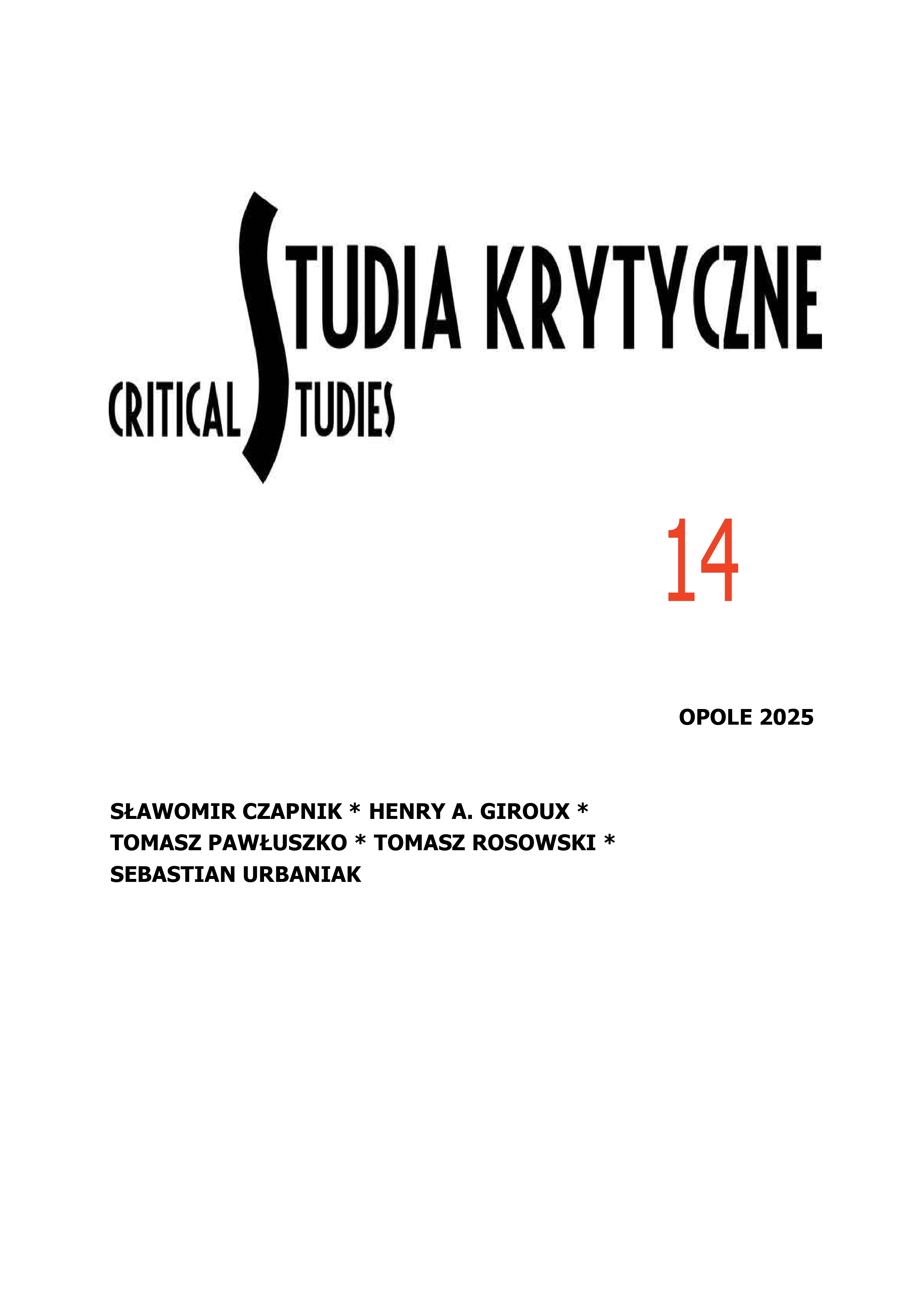


Most read (last 0 months)
Studia Krytyczne [Critical Studies] is open access online bilingual (Polish and English) academic journal, rigorously peer-reviewed that publishes original research and review articles in the social sciences and humanities.
It is the journal´'s mission to encourage fresh perspectives and unconventional ideas and connect experienced academics and young scholars in inspiring reflections.
Journal analyzes the world and local politics, the global economy, protest movements, contemporary social theory, history, philosophy, and culture.
Studia Krytyczne [Critical Studies] is a multidisciplinary journal that is open to contributions from all disciplines and approaches that critically and with a focus on power structures analyze the contemporary societies. It analyzes the important developments of our time and applies a framework unconstrained by divisions into politics, sociology, economics, gender studies, philosophy or history.
We publish both theoretical and empirical research. Each issue includes both in-depth papers and a book reviews section.
Journal is published twice a year and considers articles for publication all year round.
The journal publishes according to the license rules Creative Commons CC BY 4.0 (Attribution 4,0 International



2022-11-22
Social Classes in contemporary Poland: experiences and discourses
We invite academic authors to submit papers for the special issue of "Studia Krytyczne" edited by Kamil Łuczaj and Justyna Kajta. The issue will be focused on qualitative analyses of social classes in Poland, with particular emphasis on the study of class experiences and discourses.
As compared to the UK or France, class language and class self-identifications are much less rooted in Polish society. This, of course, is related to the different historical experiences, which translate, among other things, into the emotional and political connotations of the notion of class. The post-transformation discourse normalizing social inequalities and grounding the idea of meritocracy is also significant here. If social class is discussed in Polish public discourse, it is primarily the middle class. The problematic character of the discussion about classes also translates into research conducted in Polish social sciences.
At the same time, in recent years, we can observe an increase in the interest of Polish researchers in the cultural turn in the analysis of social classes in Poland, hence we would like to give voice to these analyses in the special issue. We are interested in both research on class experiences (e.g. crossing class boundaries through upward mobility), social perception of social classes, and social construction of class boundaries, as well as the analysis of class representations in the media discourse. An important idea behind this issue is also the need to strengthen the voice of people who have experienced the feeling of not fitting in, marginalization, exclusion, or discrimination due to their class origin. Referring to the paradigm of new working-class studies and engaged sociology, we would like the issue to be not only a space for presenting research on the disadvantaged classes but also an opportunity to increase their visibility.
We would like to collect academic papers based on qualitative research in the field of broadly understood social sciences (including sociology, social anthropology, pedagogy, and narrative psychology). We also encourage the authors to submit theoretical autoethnographic analyses.
The thematic scope of the issue includes issues such as:
The publication of the issue is planned for the June 2023. The deadline is March 15, 2023. Manuscripts both in Polish and English are accepted.
Submission portal: https://czasopisma.uni.opole.pl/index.php/sk/user/register
Instructions for Authors: https://czasopisma.uni.opole.pl/index.php/sk/about/submissions